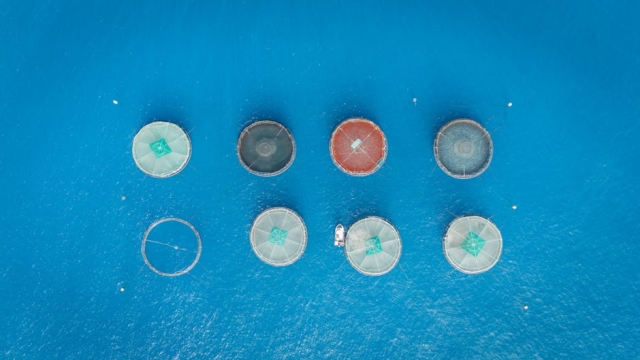
In recent years, the growing demand for sustainable food sources has highlighted the significance of efficient aquaculture systems. These systems are designed to maximize productivity while minimizing environmental impact, making them vital for the future of fish farming and the global food supply. By implementing innovative technologies and best practices, aquaculture can evolve into a more sustainable industry that meets consumer needs without compromising ecological integrity.
Overview of efficient aquaculture systems and Their Importance
Efficient aquaculture systems focus on producing fish and seafood in a manner that conserves resources and reduces waste. Unlike traditional methods that can harm aquatic ecosystems, these systems prioritize sustainability through controlled environments and responsible management practices. The aim is to achieve high yields of healthy fish while maintaining water quality, ensuring animal welfare, and protecting surrounding habitats. This approach not only benefits producers but also supports food security and environmental conservation efforts globally.
Innovative Technologies in Aquaculture
One of the cornerstones of efficient aquaculture systems is the adoption of innovative technologies that enhance production and sustainability. Among these technologies, recirculating aquaculture systems (RAS) stand out for their ability to reuse water and minimize waste. In RAS, water is filtered and cleaned continuously, allowing for the raising of fish in a controlled environment. This system reduces the need for large water volumes and lowers the risk of disease transmission, promoting healthier fish stocks.
Aquaponics is another transformative technology that combines aquaculture with hydroponics. In this system, fish waste provides nutrients for plants, while plants filter and clean the water for the fish. This symbiotic relationship creates a closed-loop system that maximizes resource efficiency and minimizes environmental impact. Aquaponics not only produces fish and crops but also conserves water and space, making it an excellent model for urban and small-scale farming.
Additionally, the biofloc technology offers a unique solution for fish farming by cultivating beneficial microbial communities. These microorganisms can convert organic waste into food for fish, reducing the need for external feed sources. By promoting the growth of biofloc, farmers can improve feed conversion ratios, enhance fish health, and decrease the environmental footprint of their operations.
Best Practices for Sustainable Fish Farming
To further enhance the effectiveness of efficient aquaculture systems, implementing best practices is crucial. Three core areas that require attention are water quality management, feed efficiency, and disease control.
Water Quality Management
Maintaining optimal water quality is essential for the health and growth of fish. Regular monitoring of parameters such as temperature, pH, dissolved oxygen, and ammonia levels ensures that fish thrive in a suitable environment. Employing filtration systems, aeration, and regular water changes can help maintain these conditions. Moreover, understanding the specific requirements of different fish species allows farmers to tailor their practices for improved outcomes.
Feed Efficiency
Efficient feed management plays a significant role in aquaculture productivity. Selecting high-quality feeds that meet the nutritional needs of fish can lead to better growth rates and lower feed conversion ratios. Implementing feeding strategies, such as portion control and timing, can also reduce waste and enhance efficiency. Exploring alternatives to traditional feed sources, such as insect protein or plant-based ingredients, can further contribute to sustainability.
Disease Control
Preventing and managing diseases is critical in aquaculture. Implementing biosecurity measures, such as controlling access to fish farms and ensuring proper hygiene protocols, can reduce the risk of disease outbreaks. Additionally, regular health assessments and vaccinations can help maintain fish health. Educating farmers on disease identification and management practices fosters a proactive approach to fish farming and enhances overall productivity.
In summary, efficient aquaculture systems represent a crucial advancement in the quest for sustainable food production. By embracing innovative technologies and adhering to best practices, aquaculture can thrive as a viable and environmentally responsible source of protein. For more insights on creating efficient aquaculture systems, visit Wolize, where you can find additional resources and guidance for optimizing your aquaculture practices.
